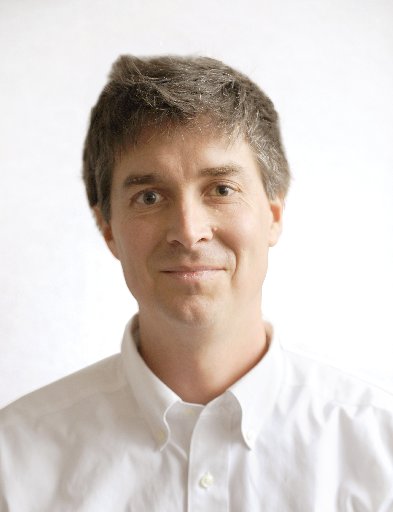Local storyteller Jim Pfitzer thinks Aldo Leopold may be the most important American we've ever forgotten.
Leopold, the Wisconsin conservationist and author of the influential "A Sand County Almanac," is to American environmentalism what Bill Gates is to Windows. Kareem Abdul Jabbar to hook shots. Walt Disney to mice. And so on.
Yet the other day, while Pfitzer was beginning his lecture on Leopold to a class of local students, one interrupted with a most telling question.
"What's an Aldo Leopold?" the student asked.
Not who. But what. Surely this was an elementary student. English-as-a-sixth-language. The class clown?
"A biology major," Pfitzer remembers.
Tonight, Pfitzer continues his heroic and singlehanded attempt to resurrect the memory of Leopold. At Barking Legs Theater, Pfitzer will perform an encore of "A Standard of Change," his 57-minute-long impersonation of Leopold and his great contribution to American conservation.
Namely, the Leopold land ethic.
"The land has an intrinsic value and must be treated with the same love, respect and admiration we treat people with," said Pfitzer-as-Leopold.
The show ran in April at Chattanooga Theatre Centre. I had heard it was incredibly moving. One friend wept. I had my doubts. Then I saw a dress rehearsal.
Pfitzer, who has within him more stories than a Dubai hotel, is magnificent. His performance stays with you, like an echo. The sparse set -- depicting Leopold's Wisconsin cabin -- gives room for Pfitzer, in full costume, to evoke Leopold's ghost, and the truth of what he wrote and said.
Like: "To build a new road is much easier than to think about what a country really needs."
Or: "Only the mountain has lived long enough to listen objectively to a howl of a wolf."
And: "In wildness is the salvation of the world."
Pfitzer wrote the script, which settles in like a dog by the fire on one key part of Leopold's life.
"It's the story of how Aldo Leopold went through a pretty radical transformation as he started realizing how wrong he and others had been," Pfitzer said.
Picture Leopold as the Saul-turned-St. Paul of conservation. Once, believing it good practice, he tried to kill as many bears, wolves and cougars as possible to protect Western landowners and their stock. He came to realize the one-sided destructiveness of this, especially after one transformative encounter with a dying wolf.
"We reached the wolf in time to watch the fierce green fire go out in her eyes," Pfitzer performs.
Leopold evolves, and soon articulates his land ethic, best described in his famous essay "Think Like a Mountain" which is the bulk of Pfitzer's show.
Love. Respect. Admiration. If it's wrong for us to damage another human, it is also wrong for us to damage the land.
"In short, a land ethic changes the role of Homo sapiens from conqueror of the land-community to plain member and citizen of it," Leopold wrote.
For Pfitzer, a native Chattanoogan, the performance began decades ago.
"I can remember back, 8 or 9 years old, and riding down the road in my parents' station wagon, and seeing asphalt, neon lights and power lines and being deeply saddened by it all," he said. "I felt like something was wrong in the way we were doing things."
Maybe you know this sadness, too. The sadness of a polluted ecology. Streams you can't swim in. Fish you can't eat. Toxic waste, cancers, mountaintop removal. They paved over paradise and put in a Denny's.
Then he came across Leopold's book.
"It gets to the heart of where we are as Americans," he said.
Pfitzer performs his show at Bonnaroo, then hopes its spreads like a controlled burn across the nation. I wish he'd have a standing appointment in classrooms across Hamilton County next year, as teachers invite him -- as Leopold -- to help teach biology, life sciences, animals and plants.
"Hands down, this is the most important story I've ever told," said Pfitzer.
David Cook can be reached at davidcook@hushmail.com.

